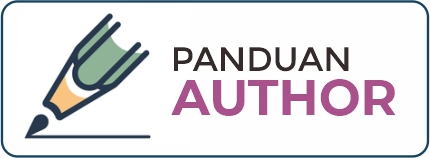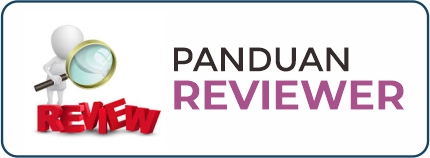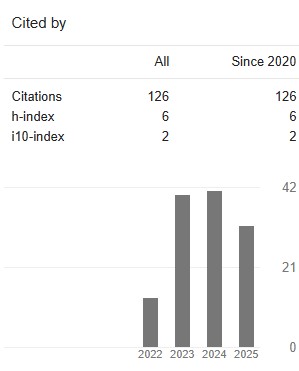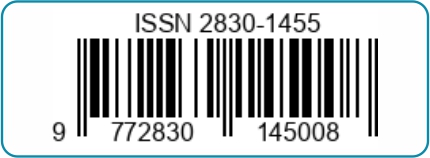Strategi Pemberdayaan Wirausaha Syariah Gen-Z Berbasis SWOT pada Start-Up Halal F&B di Indonesia
SWOT-Based Gen-Z Sharia Entrepreneurial Empowerment Strategy for Halal F&B Start-Ups in Indonesia
DOI:
https://doi.org/10.36701/al-khiyar.v5i2.2565Keywords:
Gen-Z, halal F&B, empowerment strategy, Islamic entrepreneurship, SWOTAbstract
This study aims to identify the strengths, weaknesses, opportunities, and threats (SWOT) faced by Gen-Z Muslimpreneurs and to formulate empowerment strategies aligned with the principles of Islamic entrepreneurship. The research employs a descriptive qualitative method using a literature review and documentation approach. The analysis is conducted through SWOT mapping, systematically structured based on findings from academic literature and official documents. The results reveal that Gen-Z Muslimpreneurs possess notable strengths, including religiosity, digital proficiency, and innovation capacity. However, they also encounter challenges such as limited managerial experience and restricted access to capital. Externally, they benefit from the growing halal market and supportive regulatory frameworks, yet they must also navigate a highly competitive industry and complex certification processes. Based on this mapping, four strategic directions are proposed: (1) digital Islamic business training (SO), (2) collaboration with halal business incubators (WO), (3) trend filtration based on Islamic values (ST), and (4) mentoring and regulatory literacy (WT). These strategies are further developed into the Operational Framework for Empowering Gen-Z Muslimpreneurs, comprising four core pillars: integrated training, business collaboration, halal trend laboratories, and legal mentoring for business transformation. The findings are expected to serve as both conceptual and practical references for communities, training institutions, and policymakers in fostering a sustainable and competitive Islamic entrepreneurship ecosystem in the era of the global halal industry.
Downloads
References
Agung, Deatri Arumsari, Monica Adjeng Erwita, Dirgantara Dahana Mokoginta, Gesti Memarista, Aldo Hardi Sancoko, Andy Pratama Sulistyo, Natalia Kristina, Alpi Mawasti, and Visi Saujaningati Kristyanto. “Community Engagement For Development: Gen Z as The Agent of Innovation to Achieve SDGs.” PeKA: Jurnal Pengabdian Kepada Masyarakat 5, no. 2 (2022): 159–70.
Agung, Ilyas, and Mei Santi. “Sertifikasi Halal Dan Tantangannya Bagi UMKM Kuliner.” EKSYAR: Ekonomi Syari’ah Dan Bisnis Islam (e-Journal) 12, no. 01 (2025): 166–77.
Andre Alkahfi, Muhammad, and Zuhrinal M. Nawawi. “Peran Etika Bisnis Dalam Perusahaan Bisnis Di Era Globalisasi.” ManBiz: Journal of Management and Business 1, no. 2 (2022): 75–88. https://doi.org/10.47467/manbiz.v1i2.1675.
Azam, Md Siddique E, and Moha Asri Abdullah. “Global Halal Industry: Realities and Opportunities.” IJIBE (International Journal of Islamic Business Ethics) 5, no. 1 (2020): 47–59.
Azwar, Azwar, Abur Hamdi Usman, and Mohd Farid Ravi Abdullah. “The Opportunities and Challenges of the Halal Food Industry in Indonesia: Some Notes from Quranic and Economic Perspectives: Peluang Dan Cabaran Industri Makanan Halal Di Indonesia: Beberapa Catatan Daripada Perspektif Al-Quran Dan Ekonomi.” Al-Irsyad: Journal of Islamic and Contemporary Issues 7, no. 1 (2022): 807–18. https://www.al-irsyad.kuisjournal.com/index.php/alirsyad/article/download/270/113.
Bhalla, Rohan, Pinaz Tiwari, and Nimit Chowdhary. “Digital Natives Leading the World: Paragons and Values of Generation Z.” In Generation Z Marketing and Management in Tourism and Hospitality: The Future of the Industry, 3–23. Springer, 2021.
Danardono, Danardono, Reza F T Rezaldi, Alifah M Ulzanah, and Muhammad R Khafiz. “Optimalisasi Lembaga Keuangan Syariah Untuk Memajukan Industri Teknologi Bagi Generasi Z.” Jurnal Ilmiah Manajemen Ekonomi Dan Akuntansi (JIMEA) 1, no. 2 (2023): 1–7. https://doi.org/10.62017/jimea.v1i2.207.
Fathoni, Muhammad Anwar. “Potret Industri Halal Indonesia: Peluang Dan Tantangan.” Jurnal Ilmiah Ekonomi Islam 6, no. 3 (2020): 428–35. http://publishing-widyagama.ac.id/ejournal-v2/index.php/jma/article/view/247/242.
Ginting, Tampe Tuah Malem, and Arnan Sari Mendrofa. “Akses Permodalan Bagi Wirausaha Muda: Tinjauan Literatur Terhadap Hambatan Dan Solusi.” Jurnal Pengembangan Usaha Dan Kewirausahaan 1, no. 1 (2025): 24–29.
GoodStats. “Sensus BPS: Saat Ini Indonesia Didominasi Oleh Gen Z,” 2023. https://data.goodstats.id/statistic/sensus-bps-saat-ini-indonesia-didominasi-oleh-gen-z-n9kqv.
Gürsoy, Doğan, Levent Altınay, and Ainur Kenebayeva. “Religiosity and Entrepreneurship Behaviours.” International Journal of Hospitality Management 67 (2017): 87–94. https://doi.org/10.1016/j.ijhm.2017.08.005.
Haryono, Haryono. “Strategi Pengembangan Industri Halal Di Indonesia Menjadi Top Player Global.” Ad-Deenar: Jurnal Ekonomi Dan Bisnis Islam 7, no. 02 (2023).
Hasyim, Hasnil. “Peluang Dan Tantangan Industri Halal Di Indonesia.” Ad-Deenar: Jurnal Ekonomi Dan Bisnis Islam 7, no. 02 (2023).
Jeaheng, Yoksamon, Amr Al-Ansi, and Heesup Han. “Impacts of Halal-Friendly Services, Facilities, and Food and Beverages on Muslim Travelers’ Perceptions of Service Quality Attributes, Perceived Price, Satisfaction, Trust, and Loyalty.” Journal of Hospitality Marketing & Management 29, no. 7 (October 2, 2020): 787–811. https://doi.org/10.1080/19368623.2020.1715317.
Kendy, Zadida U, Tia Wati, Dwiana Maharani, Rio Syahputra, Muhammad S Habibi, and Wijiat M Ningrum. “Penerapan Bisnis Komunitas Genarasi Z (Gen-Z) Berdasarkan Prinsip Ekonomi Syariah.” Econis 2, no. 2 (2024): 179–88. https://doi.org/10.61994/econis.v2i2.489.
Laka, Laurensius, Rafik Darmansyah, Loso Judijanto, Justin Foera-era Lase, Farid Haluti, Febti Kuswanti, and Kalip Kalip. Pendidikan Karakter Gen Z Di Era Digital. PT. Sonpedia Publishing Indonesia, 2024.
Mahardika, Swadia G, Muh S F AF, Rinna R A Fitriah, and Abiyajid Bustami. “Meningkatkan Literasi Keuangan Syariah Generasi Z Melalui Seminar Di Universitas Mulawarman.” Irajagaddhita 2, no. 2 (2024): 41–47. https://doi.org/10.59996/irajagaddhita.v2i2.587.
Masruroh, Nikmatul. “The Competitiveness of Indonesian Halal Food Exports in Global Market Competition Industry.” Economica: Jurnal Ekonomi Islam 11, no. 1 (2020): 25–48.
Menne, Firman. “Inovasi Dan Literasi Keuangan Syariah Bagi Pelaku UMKM.” Jesya (Jurnal Ekonomi & Ekonomi Syariah) 6, no. 1 (2023): 1111–22. https://doi.org/10.36778/jesya.v6i1.1213.
Moleong, Lexy J. Metodologi Penelitian Kualitatif. PT Remaja Rosdakarya, 2021.
Muhamad, Muhamad. “Tantangan Dan Peluang Penerapan Kebijakan Mandatory Sertifikasi Halal (Studi Implementasi UU No. 33 Th. 2014 Dan PP No. 31 Th. 2019).” Jurnal Ilmu Ekonomi Dan Bisnis Islam 2, no. 2 (2020): 1–26. https://doi.org/https://doi.org/10.24239/jiebi.v2i2.29.1-26.
Mulyadi, Dedi, and Mohamad A Athoillah. “Product Innovation of Sharia Financial Institution: Theory Review.” Journal of Economicate Studies 1, no. 1 (2017): 1–8. https://doi.org/10.32506/joes.v1i1.3.
Natsir, Siti Z M, Bibin Rubini, Didit Ardianto, and Nurhaedah Madjid. “Interactive Learning Multimedia: A Shortcut for Boosting Gen-Z’s Digital Literacy in Science Classroom.” Jurnal Penelitian Pendidikan Ipa 8, no. 5 (2022): 2168–75. https://doi.org/10.29303/jppipa.v8i5.1897.
Ningsih, Sri. “Implementasi Prinsip Produksi Islam Dan Perilaku Negative Pada Praktik Bisnis Non Syariah Dengan Konsep Pemikiran Mehdi Golshani.” Iqtishadia Jurnal Ekonomi & Perbankan Syariah 8, no. 1 (2021): 88–109. https://doi.org/10.19105/iqtishadia.v8i1.4103.
Olivia, Gita, Muhammad I Fasa, and Suharto Suharto. “Strategi Pengembangan Usaha Kecil (Small Business) Di Kalangan Gen Z Berdasarkan Nilai – Nilai Ekonomi Syariah.” Jurnal Riset Akuntansi Politala 4, no. 2 (2021): 83–94. https://doi.org/10.34128/jra.v4i2.80.
Otoritas Jasa Keuangan (OJK). “Infografis Hasil Survei Nasional Literasi Dan Inklusi Keuangan Tahun 2022,” 2022. https://www.ojk.go.id/id/berita-dan-kegiatan/info-terkini/Pages/Infografis-Survei-Nasional-Literasi-dan-Inklusi-Keuangan-Tahun-2022.aspx.
Rangkuti, Freddy. Analisis SWOT Teknik Membedah Kasus Bisnis. Gramedia Pustaka Utama, 1998.
———. Analisis SWOT Teknik Membedah Kasus Bisnis. Jakarta: Gramedia Pustaka Utama, 2015. https://books.google.co.id/books?hl=en&lr=&id=UHV8Z2SE57EC&oi=fnd&pg=PR9&dq=Analisis+SWOT+Teknik+Membedah+Kasus+Bisnis&ots=PvQMqYrFSC&sig=cipjPXXljBxv0fPPlxtrb2kua1A&redir_esc=y#v=onepage&q=Analisis SWOT Teknik Membedah Kasus Bisnis&f=false.
Raslie, Humaira. “Gen Y and Gen Z Communication Style.” Studies of Applied Economics 39, no. 1 (2021).
Sabirin, Sabirin, and Dini Ayuning Sukimin. “Islamic Micro Finance Melati: Sebuah Upaya Penguatan Permodalan Bagi Pedagang Pasar Tradisional.” Economica: Jurnal Ekonomi Islam 8, no. 1 (2017): 27–53.
Sakitri, Galih. “Selamat Datang Gen Z, Sang Penggerak Inovasi!” In Forum Manajemen, 35:1–10, 2021.
Sari, Yessi A, and Reza Ronaldo. “Peran Pemasaran Digital Dalam Mengembangkan Bisnis Syariah Di Era Digital.” Jurnal E-Bis (Ekonomi-Bisnis) 8, no. 1 (2024): 263–75. https://doi.org/10.37339/e-bis.v8i1.1555.
Saro, David, Larisang Larisang, Hilda Herasmus, Harmen Harmen, and Firnam Firnam. “Pengaruh Aplikasi Inkubator Bisnis Terhadap Keberlanjutan Usaha Rintisan: Kajian Literatur.” Jr Jurnal Responsive Teknik Informatika 8, no. 01 (2024): 29–36. https://doi.org/10.36352/jr.v8i01.813.
Serbanescu, Anca. “Millennials and the Gen Z in the Era of Social Media.” Social Media, Technology, and New Generations: Digital Millennial Generation and Generation Z 61 (2022).
Syarifuddin, F. “Fostering Inclusive Welfare and Islamic Financing through Islamic Social Finance Digitalization Strategy.” Edelweiss Applied Science and Technology 8, no. 4 (2024): 583–619. https://doi.org/10.55214/25768484.v8i4.1438.
Yusuf, Choirul F. “Literasi Keagamaan Generasi Milenial Indonesia: Tantangan Masa Depan Bangsa,” 2021. https://doi.org/10.14203/press.459.
Downloads
Published
Issue
Section
License
Copyright (c) 2025 Khaerul Aqbar, Azwar Azwar

This work is licensed under a Creative Commons Attribution-NonCommercial-ShareAlike 4.0 International License.













